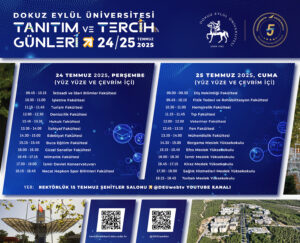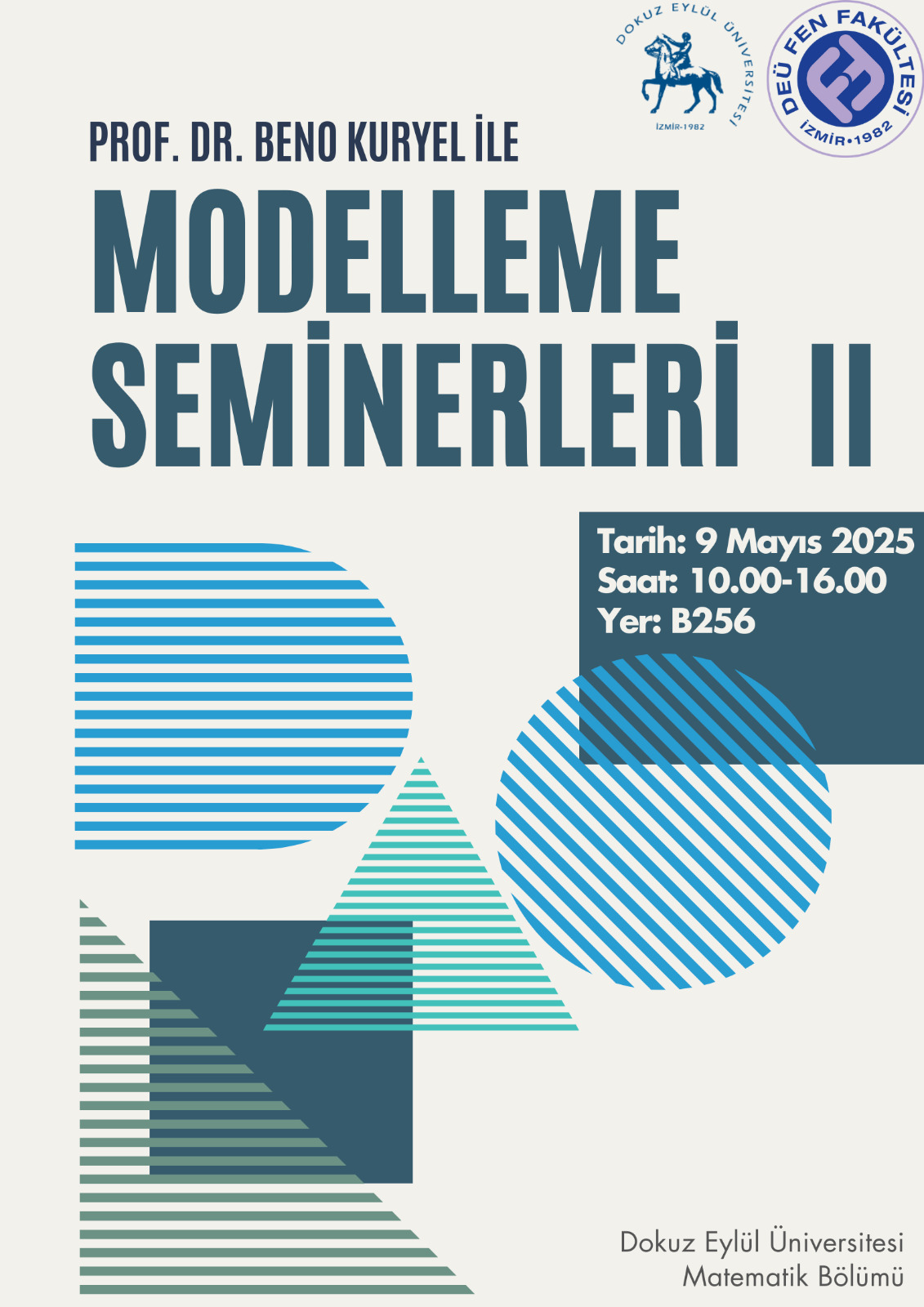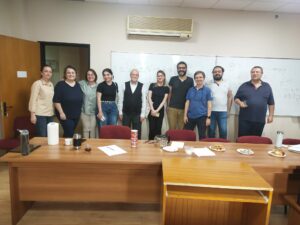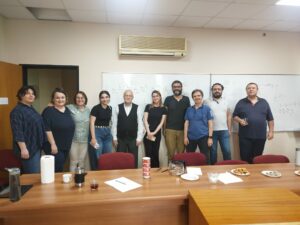announcement
Student Seminar: Bifurcations with Applications
Abstract: Last spring, we gave a presentation on chaos theory, where we discussed many concepts within the scope of the theory. In this presentation, we aim to explore the behavior of dynamical systems through examples drawn from everyday life. From changes in the Earth’s climate to predator–prey interactions observed in nature; from the operating principles of lasers to the extinction of languages spoken in the past, we examine these processes from a mathematical perspective. We would be pleased to have you join our presentation.
Date: December 24, 2025 | 12.00 – 13.00
Place: B256

Orientation for Department of Mathematics students
Date : 15.09.2025
Place : B254
Schedule
- 13:00-13:45 Students meet with department faculty members,
- 13:45-14:30 Department introductory presentation,
- 14:30-15:15 Arithmathic Student Society introductory presentation.
Student Seminar: To Chaos and Beyond
Title: To Chaos and Beyond
Speakers: Şüheda Dilmaç, Naciye Çağlar
Abstract: In this student-to-student presentation, we explore the fascinating world of chaos theory
together! Concepts like the butterfly effect, the Lorenz attractor, and fractals are explained in a
clear and fun way through real-life examples and interactive content. A delightful introduction for
anyone curious about chaos!
Date: June 11, 2025 | 12.00 – 13.00
Location: B256
Are We Ready for the AI Transformation?
This month’s carier event theme is “Artificial Intelligence”! We are hosting a talk titled “Are We Ready for the AI Transformation?” with AI expert Dr. Melike PALSÜ KURT. The event is open to all mathematics department students and anyone interested in the topic.
Speaker: Dr. Melike PALSÜ KURT ( AI Expert)
Topic: Are We Ready for the AI Transformation?
Date & Time: May 27, 2025, 20:00 (GMT+3)
Location: OnlineDEU
Channel: DEÜMatematikKARİYER
Moderators: Ayşenur YAZICI & Asst.Prof.Dr. Celal Cem SARIOĞLU
( Those from outside the department are kindly requested to contact the moderators for participation details.)






